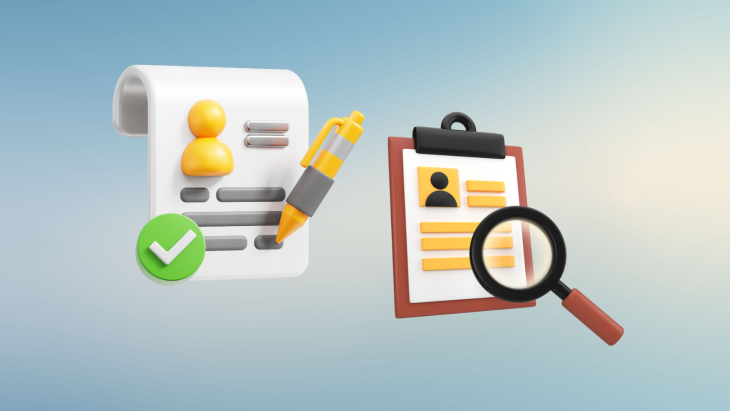Recent Posts
- Am I too sensitive to noise? It drives me crazy! The psychological effects of noise on mental health
- What are the signs that I am avoiding grief? How avoiding processing loss impacts mental health
- My son's disruptive behavior is affecting his life. How can I help him improve?
- I want to be ready for motherhood: Exploring pre- and postnatal mental health issues
- Effects of positivity on job search motivation. How do I stay confident when my job search gets tough?
Most Popular
What should I leave on and off my resume?

If you have been in the job market long enough, or if you are a new graduate, but you have been an active and accomplished student, you might find it hard to fit all your skills, experiences, and everything else you bring to a prospective employer when writing your resume.
Chances are, despite your efforts, your resume just gets longer and longer, while feeling the pressure of making everything fit a 1 to 2-page resume!
But here is a rule of thumb when it comes to resume-writing: the focus you have on what details to include should be the same focus you should apply on what NOT to include.
Here are things to remember to remind you why you need to be intentional about writing your resume:
- Your resume needs to pass through a screening software. With online applications, a lot of jobs posted online receive applications from hundreds to a thousand, so most resumes first go through an automated screening process by an applicant tracking system (ATS). The ATS, as a software, allows hiring teams to sort through the high volume of resumes they receive and pick the most relevant resumes.
- Basically, an ATS searches for keywords relevant to the job position among the many resumes and while discarding the resumes that do not match the job description. (1) This tells us that we need to be mindful to match the content of our resume to the job post we are applying for.
- You have a minute to make an impression. Despite using an ATS, hiring teams still have to sort through about 25% of the resumes that match the job. With many job openings to fill, they have only a minute or two to look at a resume and decide whether to move you to the next stage of hiring or not. (2) Include only the necessary details that portray you as a strong candidate for the job!
With these in mind, here are the things that should not be included in your resume:
- A generic resume objective statement. Copying and pasting a general objective statement for every job you apply for is not very wise, since it does not give HR the chance to know you as a unique applicant. It is a waste of space in your resume.
- Instead, use a professional summary or a career statement to give HR three to five sentences that include your most relevant skills and experience that make you a fitting person for the role.
- Too much irrelevant career information. You might have a diverse job experience spanning several industries, or you might have experiences and skills that make you a very versatile talent, but that does not mean you need to cram every detail in your resume.
- Only make room in your resume the details that will most likely increase your chances of getting the job. Specific job responsibilities per relevant job still would take a lot of space, so try to limit them to two to three key responsibilities and skills that are the most significant.
- Use bullet points to organize important information, so you do not have lengthy paragraphs that are hard to read.
- Personal information that increases the risk for discrimination. The things that should not be included in order to prevent chances of you being discriminated against include your age, nationality, disability, the year you graduated, your photo, and your political and religious affiliations.
- Negativity. Comments that paint yourself, your previous employers, and co-workers in a negative light should be left out of your resume. You do not need to say the negative reasons why you left your previous company, and only share the relevant skills and experiences you learned that make you ready to take on the next job you are applying for. Your positivity will put you in a good light!
When you prioritize things that matter, your skillset and experience that make you a match for the job, become intentional in choosing your words, you will effectively communicate your value as a qualified applicant.
Top healthcare jobs in the mental health industry are available. Discover how you can connect with these rewarding healthcare opportunities.








Comments